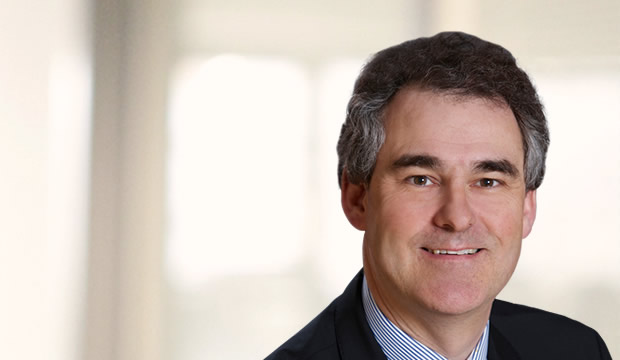Get the latest financial news, insights and expert analysis from our award-winning MoneyWeek team, to help you understand what really matters when it comes to your finances.
You are now subscribed
Your newsletter sign-up was successful
Want to add more newsletters?

Twice daily
MoneyWeek
Get the latest financial news, insights and expert analysis from our award-winning MoneyWeek team, to help you understand what really matters when it comes to your finances.

Four times a week
Look After My Bills
Sign up to our free money-saving newsletter, filled with the latest news and expert advice to help you find the best tips and deals for managing your bills. Start saving today!
Each week, a professional investor tells MoneyWeek where he'd put his money now. This week:Sam Morse, portfolio manager, Fidelity European Values.
My approach to investment involves identifying companies with the best prospects for consistent dividend growth. Usually this means I invest in large, well-run businesses that operate in secular growth industries.
I look for four key characteristics: strong fundamentals (companies whose products and services are likely to experience an increase in demand over the coming years); cash generation (companies whose growth is conservative and profitable); strong balance sheets (a robust financial position is important to withstand changing economic conditions); and an attractive valuation. I will often hold the company's shares for three to five years or more. This minimises trading costs in the portfolio and also prevents me from being overly influenced by short-term changes in market sentiment.
MoneyWeek
Subscribe to MoneyWeek today and get your first six magazine issues absolutely FREE

Sign up to Money Morning
Don't miss the latest investment and personal finances news, market analysis, plus money-saving tips with our free twice-daily newsletter
Don't miss the latest investment and personal finances news, market analysis, plus money-saving tips with our free twice-daily newsletter
Nestl (Zurich: NESN) has significant market share in sectors ranging from ice cream to pet-care products. With 45% of its sales generated from emerging markets, it has an engine for long-term growth that is the envy of many other companies. Changing consumer tastes create challenges for Nestl, but over the years, the firm has proved its ability to adapt its products to remain relevant and popular. Nestl has an ambitious sales-growth target of 5% per year.
Given Nestl's commitment to research and development, as well as its attractive positions in emerging markets, consistent sales growth around this level is certainly attainable. I have confidence in the ability of management to translate this into shareholder rewards, such as dividends and buy backs. The company has a 50-year track record of rising dividends, with 20% growth over the last five years.
Essilor (Paris: EI) is the leading supplier of corrective lenses. It supplies around 45% of the world's lenses (by value), including to retailers such as Boots and Walmart Optical. The company estimates that there are 2.6 billion people on the planet who require spectacles or contact lenses, but do not currently use them. Hence Essilor's primary growth opportunity is to increase the take-up of corrective lenses. With the global population ageing, and people spending more time focused on screens atclose range, the total addressable market is growing at around 3% per year.
Essilor is also moving into sunglasses, which offer another significant opportunity. While many luxury sunglasses manufacturers focus on the fashion content of the frame, and buy cheaper lenses from China, Essilor emphasises the benefits of wearing "performance" lenses that can more effectively protect wearers' eyes from UV rays. Essilor pays out around a third of its earnings in dividends, reinvesting the rest. The company has delivered 22% dividend growth over the last five years and the prospects for further increases are good.
Fresenius Medical Care (Frankfurt: FME) specialises in medical supplies related to kidney dialysis, which is required by people who have experienced kidney failure. This malady is more common in the elderly, so global demographic trends make this an attractive niche market.
The company has spent many years building up a leading competitive position by acquiring clinics and chains of clinics. This is now a consolidated industry and the company enjoys good pricing power. It has an opportunity to improve margins by better integrating these clinics and standardising certain elements.The firm has delivered 51% dividend growth over the last five years.
Get the latest financial news, insights and expert analysis from our award-winning MoneyWeek team, to help you understand what really matters when it comes to your finances.
Sam Morse is a portfolio manager of Fidelity European Values.He joined Fidelity in 1990 as a research analyst and four years later he progressed as a portfolio manager in 1994, where he was responsible for running several retail UK equity funds and mandates. In 1997 Sam joined M&G as Head of UK Equities and one fund he ran in particular was the M&G UK Growth Fund. Sam then went back to Fidelity in 2004 as Head of the Institutional UK Equity Team, and his role consisted of developing UK equity solutions for institutional clients and managing UK equity portfolios. Since 2009 to present, Sam continues to manage the Fidelity European Fund and Fidelity European Trust PLC since 2011.
-
 Average UK house price reaches £300,000 for first time, Halifax says
Average UK house price reaches £300,000 for first time, Halifax saysWhile the average house price has topped £300k, regional disparities still remain, Halifax finds.
-
 Barings Emerging Europe trust bounces back from Russia woes
Barings Emerging Europe trust bounces back from Russia woesBarings Emerging Europe trust has added the Middle East and Africa to its mandate, delivering a strong recovery, says Max King

